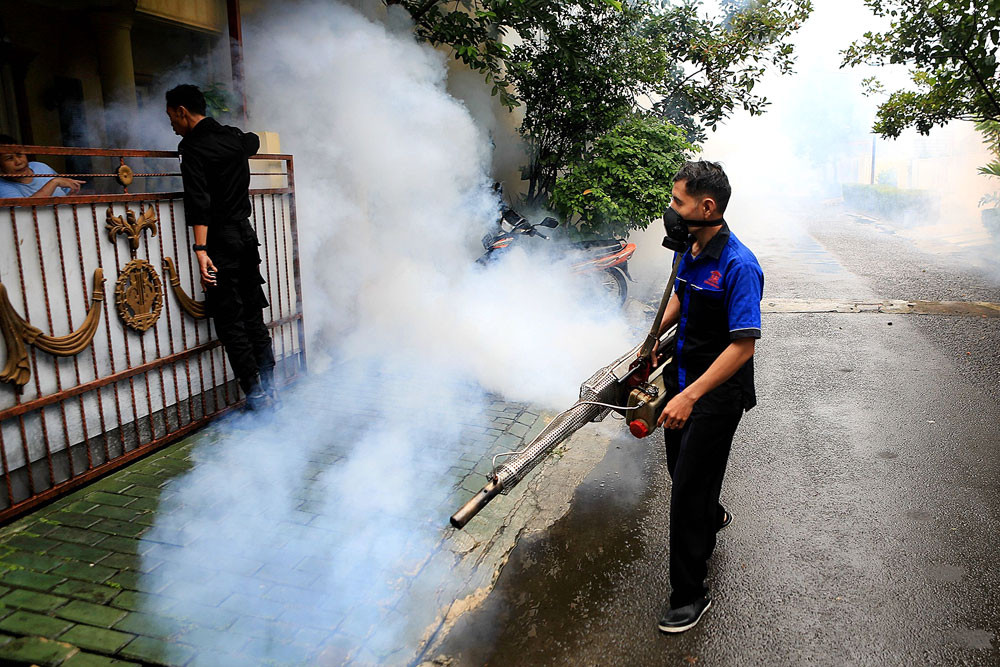 Of an Indonesian workforce of more than 160 million people in 2016, as many as 40 percent were millennials – 62.5 million – and almost 50 percent were generation X – one of the biggest such cohorts in the world today, according to Indonesia’s Central Statistics Agency (BPS).
Of an Indonesian workforce of more than 160 million people in 2016, as many as 40 percent were millennials – 62.5 million – and almost 50 percent were generation X – one of the biggest such cohorts in the world today, according to Indonesia’s Central Statistics Agency (BPS).
This population configuration, dominated by young people will run the Indonesian labor market over the next few years. Exposed to technological advances from an early age and with higher education participation rates, the millennial workforce tends to be more open-minded, highly creative with an entrepreneurial spirit, and puts forward the values of freedom and flexibility when working.
In terms of industry, both local and multinational companies in Indonesia are competing to continue to improve the quality of their workers because superior, talented human resources are what it takes for a business to succeed. Thus increasingly a knowledge-based workforce is vital to deliver a company’s mission. This is when the recruitment process is essential as it opens the gate for future employees to enter. This door is the initial opportunity for firms to attract high-quality individuals.
But too many Indonesian companies have been slow on the uptake of what motivates millennials to come to work for them. Somewhat surprisingly, salary, compensation and employee involvement have less influence on turnover intentions among millennials than other factors.
Why the sudden change? The rising number of undergraduate and postgraduate degree-holders may be one of the principal reasons to explain this change. These educated graduates are not only very competitive but are also well-informed. The majority are techno-literate. In 2018 Indonesia was ranked the 6th largest country in the world in terms of the number of internet users.
Accustomed to learning values that drive them to want to be beneficial to society, these highly qualified individuals possess distinct principles and norms. Some are idealists, making them take only job offers seriously from firms whose values fit their own. Young workers aspire to build their careers with companies that pay more attention to environmental, ethical, and social issues. These individuals wish to be part of something meaningful, to actively participate in jobs that bring about a positive impact to wider society through their work.
Jana Salim, a recent graduate from an American university, said that “although revenue growth and profit margins are substantial, the way companies achieve their business mission is now becoming of great importance to us.” It is important, she said, to see how a company accomplishes its goals within the framework of legal requirements and to follow ethical rules of the society’s appropriate behaviour.
Millennial applicants tend to give high ratings to energy-efficient and nature-friendly companies. Promoting green campaigns as part of their work culture, investing in energy-saving technology, Salim said, using less paper, and replacing plastic bottles with reusable tumblers in pantries can be seen as small yet appealing work policies.
There seems to be a universal perception among potential employees about the degree to which a company is held in high esteem. Past practices and future prospects in ensuring social responsibility speak for their overall appeal to all major constituents in comparison to other leading rivals.
Younger workforces are attracted to companies involved in various activities aimed at improving society’s well-being while maintaining community relationships. They see these firms as unselfish and philanthropic, thus fostering talented applicants to pursue employment. They expect organizations to pay attention to their values. Before actually applying, job seekers evaluate how much their beliefs would be catered to once they are hired.
Salim said she wouldn’t spend time on a job she doesn’t love or be dedicated to an employer whose work values don’t adhere to the values they reflect, despite being offered a high paycheck.
CSR and sustainability - Assessing the social and ethical aspects of a prospective firm is very difficult, especially for those who are not yet part of the company. However, the CSR and sustainability reports issued companies often become a public reference. This is because CSR is a reflection of a firm’s conduct in terms of social, ethical, and philanthropic aspects that can be accessed, monitored and felt directly by the public.
We can see how powerful CSR initiatives can benefit a firm’s reputation by looking at Sampoerna’s access to clean water and women empowerment programs that won Best Workplace Practices Award, Best Community Program Award, and Empowerment of Women Award in the World Renowned Global CSR Summit & Awards last April although it must be acknowledged that Sampoerna is one of the country’s biggest manufacturers of tobacco products, which are increasingly regarded as poisonous.
Meanwhile, PT Astra Agro Lestari Tbk won the main award at the CSR awards with the title platinum for its CSR program which covers economic empowerment of the community, education, health, and the environment. Acquiring such renowned titles, both firms will likely be enjoying the good image and trusted reputation for years to come, especially in the eyes of young individuals.
Employee development –the chance to move up in the corporate hierarchy and career development are more important, as is the perception that a better job may be available elsewhere.
Employers can increase job satisfaction through organizational commitments, a better work culture and career development.
As the technology sector has developed, differences have grown in the ways companies approach job seekers. Recruitment is a measure of the success of human resources departments. Finding and keeping high-caliber candidates demands that HR departments be smarter and actively create job content and form quality company branding.
As a result, the strategies many Indonesia companies follow in attracting potential applicants have dramatically changed over recent years, especially with the changing circumstances of young individuals. This workforce is different from its predecessors, who could be satisfied solely with solely competitive compensation schemes that used to be very prominent years ago.
Article by - Muhammad Zulfikar Rakhmat and Dikanaya Tarahita


